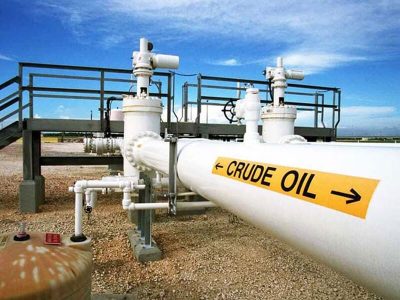
Although Nigeria produces one of the lightest and environmentally-friendly crude oil in the world, local refineries, especially Dangote refinery will import West Texas Intermediate (WTI) of about seven million barrels this month and next month.
Statistics obtained from the Nigerian Upstream Petroleum Regulatory Authority (NUPRC) showed that most international oil companies have not come to terms with the idea of supplying local refineries in the country as the Nigerian National Petroleum Company Limited (NNPC) provided over 65 per cent of the crude used by the refineries in the last five months.
Dangote Refinery has been sourcing crude oil outside of Nigeria amidst the local challenges. NUPRC statistics showed that 4.9 million barrels of heavy U.S. crude came into Nigeria this month and another two million barrels will be delivered before the end of April.
Despite the Domestic Crude Oil Supply Obligations (DCOSO) in the Petroleum Industry Act (PIA), local refineries operating in the country are still facing down time as multifaceted challenges impede the local supply of crude oil to the facilities, including Dangote Refinery.
NUPRC said yesterday in Abuja that the NNPC remained the major supplier of crude to the refineries as vessel-related bottlenecks, financial obligations, delay at loading terminals and other issues were creating challenges for the DCOSO.
Speaking at a review of the programme, Chief Executive of NUPRC, Gbenga Komolafe said the inability to factor in the provisions of the law while executing contractual agreements resulted in some companies being reluctant to allocate a portion of their production to domestic refineries.
He disclosed that operators revealed that change in vessel nomination under 24 hours to laycan, inability to provide the required financial instrument/backing prior to loading, delay in expected time of arrival of vessels resulting in production cut which is inimical to national budgetary targets, frequent change in laycans for crude oil allocated to domestic refineries, delays at loading terminals after the arrival of the loading Vessel were some of the bottlenecks to the local crude supply obligations.
Komolafe noted that only 15 per cent of the domestic sales or supplies came from other oil producers and their equity partners. He added that 21 per cent of domestic supplies was purchased from independent traders or trading arms of oil producers.
Stressing on the need for Nigeria to become a net exporter of refined petroleum products, Komolafe said: “Producers should satisfy their domestic crude oil supply to the domestic refineries so that as a nation, we seize the opportunity to reverse the ugly trend by ensuring that we develop our midstream and end being a net exporter of petroleum products, especially now that we are trying to exit the subsidy regime. The only way to sustain that is to become robust in our domestic refining capacity.
The data from the organisation also showed that Nigeria’s oil production in February was lower than that of January, hovering around 1.3 million barrels per day without condensate as against the about 1.4 million barrels in January. This is about 500,000 barrels per day lower than the projection in the 2024 budget.
Between December 2023 and April 2024, NNPC supplied about 14 million barrels of crude to local refineries. Other oil producers supplied about 3.9 million barrels within that period while traders supplied 4.8 million barrels to the local refinery. The total import and what was supplied locally between that period stood at 29.8 million barrels.
The representatives of the Oil Producers Trade Section (OPTS) and Independent Petroleum Producers Group (IPPG) at the meeting said the government must address the challenges facing the industry.
The Chairman, OPAC Refinery, Momoh Oyarekhua said while the company has a refining capacity of 10,000 barrels per day, it received just 1,500bpd in 2022. According to him, the government must resolve the bottlenecks relating to currency payments for crude oil supplied to local refineries.(Guardian)

